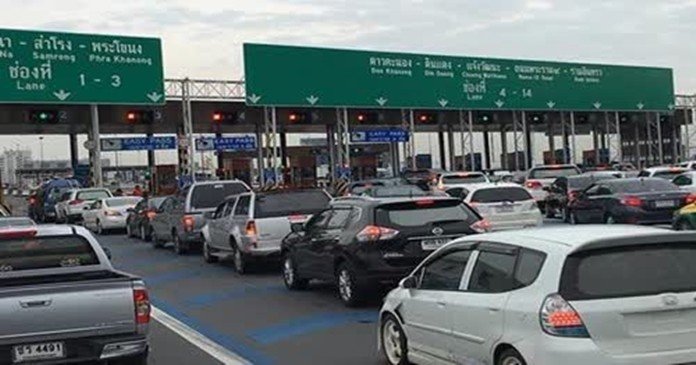Transport Minister Saksayam Chidchob has instructed the Expressway Authority of Thailand (EXAT) to address traffic congestion in front of toll booths to alleviate people’s travel problems. In the long run, the information will be linked with the Department of Land Transport and related agencies.
At the Traffic Control Center, the Transport Minister delivered his policy and assigned high-ranking officials of the Ministry of Transport to seek a solution to the problem. The Transport Minister instructed the EXAT and the Inter – City Motorway Division to conduct tests and collect statistical data related to the operations of cash-based toll booths and Easy Pass booths. This will ensure that there are adequate personnel to cover all shifts.
The long term plan is for an artificial intelligence (AI) system to be used to link the database with the Department of Land Transport, the Royal Thai Police and related agencies. Surveillance cameras will also be used to capture vehicles’ license plates, and bills will then be delivered to motorists at the end of each month. The plan will improve traffic flow, while the AI system will be operational within a year.
Currently, there are seven expressways, covering a distance of 200 kilometers. There are 1.9 million trips per day. The EXAT Deputy Governor for Operation, Dumkerng Pankam, said the seven traffic control centers have already been working closely with the Traffic Police Division to deal with traffic congestion in front of toll booths, with an average traffic flow of 350 to 420 vehicles per hour. Traffic is usually congested near the tollway exit, where it often connects with public roads.
The Permanent Secretary for Transport, Chaiwat Thongkamkoon, proposed that the speed limit should be monitored on tollways, while fines should be raised for those refusing to pay their toll fees. Motorists committing traffic offences will also have their driver’s license points deducted. More severe penalties will include attending workshops or having their driver’s licenses revoked.




